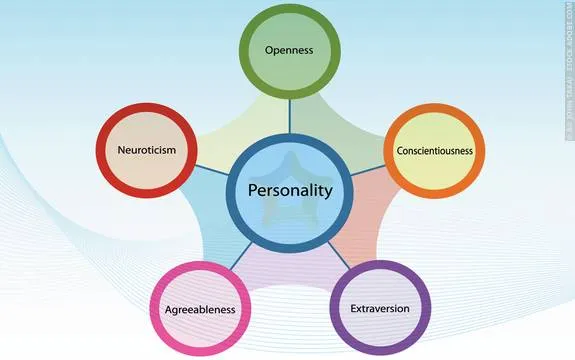
5 Key Figures in the Development of Personality Theory
Discover the 5 key figures in the development of personality theory, including Freud, Jung, Adler, Rogers, and Skinner. Learn how their groundbreaking ideas shaped modern psychology.
The Development of personality theory has been a fundamental part of psychological research for more than a hundred years. Grasping how personalities are formed, change over time, and impact behavior is essential for psychologists, educators, and even leaders. This field is filled with insights from remarkable thinkers who have significantly shaped our understanding of development personality.
In this article, we’ll dive into five key figures whose innovative ideas have played a crucial role in the development of personality theory. Each of these psychologists brought forth models and frameworks that still resonate in research, therapy, and our daily lives.

1. Sigmund Freud – The Pioneer of Psychoanalytic Theory
Sigmund Freud is perhaps the most famous name in the realm of development personality theory. He introduced the psychoanalytic approach, which emphasizes the unconscious mind, childhood experiences, and inner conflicts as the bedrock of personality.
Key Contributions:
- The Structure of the Mind: Freud proposed that the human psyche consists of three components: the id (our instinctual desires), the ego (our reality-based thinking), and the superego (our moral compass).
- Psychosexual Stages of Development: Freud believed that personality unfolds through a series of childhood stages (oral, anal, phallic, latency, and genital), and any unresolved conflicts during these stages can shape adult personality.
- Defense Mechanisms: He introduced concepts like repression, denial, and projection, which describe how the ego shields itself from anxiety.
Freud’s work set the stage for many subsequent theories and paved the way for exploring the unconscious mind in the context of personality development
2. Carl Jung – The Architect of Analytical Psychology
A former student of Freud, Carl Jung eventually charted his own path and established analytical psychology. Jung provided fresh perspectives that broadened the scope of development personality theory beyond the confines of Freudian thought.
Key Contributions:
- Archetypes and the Collective Unconscious: Jung proposed that every person has a shared collective unconscious, brimming with archetypes such as the Hero, the Shadow, and the Anima/Animus.
- Personality Typology: He was the one who brought us the ideas of introversion and extraversion, crafting psychological types that would later influence the Myers-Briggs Type Indicator (MBTI).
- Individuation: Jung highlighted the journey of discovering one’s true self, which he saw as a vital aspect of psychological developmen
Jung’s work continues to be a cornerstone in conversations about spiritual growth, personality evaluation, and the evolution of Development personality theory, both in clinical settings and everyday life.
3. Alfred Adler – The Father of Individual Psychology
Alfred Adler also played a significant role as an early innovator in Development personality theory, particularly by highlighting the impact of social factors.
Key Contributions:
- Adler’s concept of the Inferiority Complex suggests that many of us are motivated by a deep-seated desire to rise above feelings of inferiority, which often trace back to our early childhood experiences.
- When it comes to Striving for Superiority, he believed that the core drive behind our actions is the quest for significance and superiority, rather than just the sexual instincts that Freud emphasized.
- Additionally, Adler placed a strong emphasis on Social Interest, underscoring how vital community, belonging, and cooperation are in shaping our personalities.
His theories shifted the spotlight from internal struggles to the social and environmental factors that shape personality development, leaving a lasting mark on modern therapeutic approaches like cognitive-behavioral therapy.
4. Carl Rogers – The Humanistic Visionary
Carl Rogers was instrumental in shaping personality theory through a humanistic lens. He firmly believed in the inherent goodness and potential for growth within every individual.
Key Contributions:
- When it comes to self-concept and the ideal self, Rogers pointed out that our personalities are heavily influenced by how we perceive ourselves compared to who we aspire to be.
- He also introduced the idea of Unconditional Positive Regard, suggesting that for someone to truly flourish, they need to feel accepted and loved by others without any strings attached.
- In terms of therapy, his Person-Centered Therapy approach focuses on fostering empathy, active listening, and a deep respect for the client’s personal experiences.
Rogers highlighted the importance of personal agency and self-awareness, offering a more hopeful perspective on personality theory that stood in stark contrast to the more deterministic views held by Freud and others.
5. B.F. Skinner – The Behaviorist Innovator
On the other hand, B.F. Skinner took a completely different approach to personality theory. Rather than delving into internal processes, he focused on observable behaviors and how the environment influences personality development.
Key Contributions:
- Operant Conditioning: According to Skinner’s theory, our behavior is influenced more by rewards and punishments than by our internal drives or unconscious conflicts.
- Behavior Modification: He created methods to alter behavior through reinforcement techniques, which continue to be popular in both education and therapy settings.
- Rejection of Free Will: Skinner believed that the concept of free will is just an illusion, asserting that all our actions can be understood through the lens of environmental conditioning.
While it may spark some debate, Skinner’s contributions were crucial in shaping personality theory, emphasizing how our surroundings influence our behavior over time.
The Interconnected Evolution of Personality Theories
What makes the evolution of personality theory so fascinating is the way these thinkers, despite their varying perspectives, each added a unique piece to a much larger puzzle. Freud set the stage with his ideas on unconscious motivation, Jung took it further by exploring spiritual and symbolic dimensions, Adler introduced the importance of social interactions, Rogers focused on self-growth and empathy, and Skinner brought it all back to what we can actually observe in behavior.
Collectively, they create a broad spectrum—from the internal to the external, deterministic to humanistic, and unconscious to observable—that enriches modern personality psychology in such a vibrant way.
How These Theories Shape Today’s Psychology
The evolution of personality theory goes beyond just being a topic for scholars. These concepts play a crucial role in everything from how therapists engage with their clients to how employers evaluate potential hires. Well-known tools like the MBTI, the Big Five personality test, and a myriad of self-help books all trace their roots back to five influential figures.
Therapists often mix and match these theories to cater to the unique needs of their clients. For example, cognitive-behavioral therapy might weave in Adler’s goal-oriented approach, Rogers’ focus on self-concept, and Skinner’s principles of reinforcement.
Educational institutions also lean heavily on these theories to foster student growth, modify behavior, and enhance social-emotional learning. Even fields like leadership coaching and organizational psychology are deeply intertwined with the foundations laid by personality theory.
Why It Matters: The Impact of Personality Theory on Everyday Life
Understanding personality theory isn’t just a playground for psychologists; it’s a key that unlocks the mysteries of human behavior for all of us. It sheds light on why we do what we do, how we evolve, and how we connect with one another.
Whether you’re working through relationships, chasing personal growth, or leading a team, the insights from these theories can equip you with practical tools and a deeper sense of self-awareness. Realizing the internal and external forces that shape your personality can be incredibly empowering.
Conclusion
The evolution of personality theory has been shaped by some of the brightest minds in psychology. Freud, Jung, Adler, Rogers, and Skinner each offered unique perspectives that help us navigate the intricate landscape of human personality. Their ideas are still relevant today, providing valuable insights for therapy, education, business, and our daily lives.
By diving into the contributions of these five key figures, we can cultivate a richer understanding of how personality develops, adapts, and flourishes. As research progresses and new viewpoints arise, the impact of these foundational thinkers will undoubtedly continue to influence the future of psychology and beyond.













Add comment